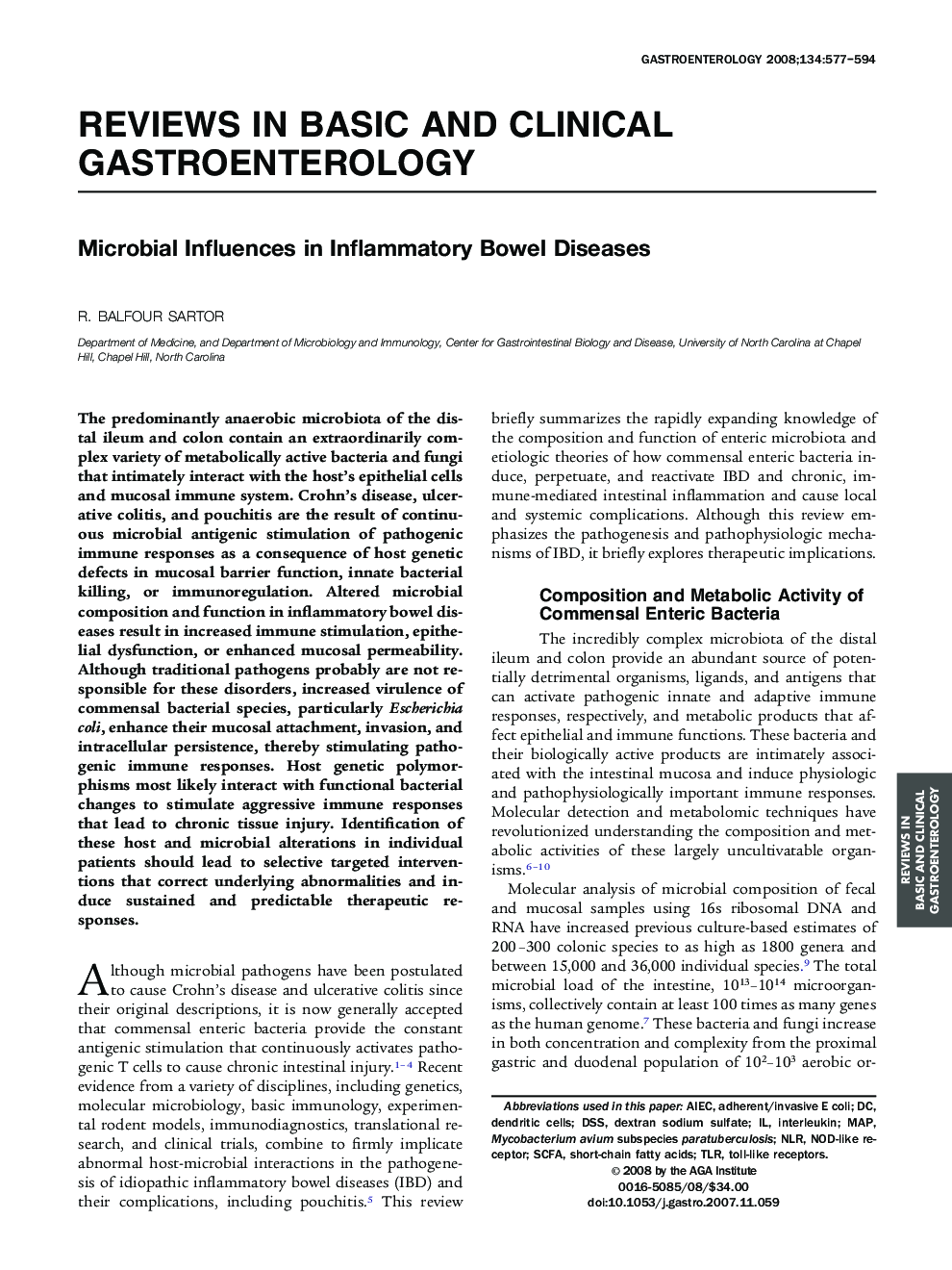| Article ID | Journal | Published Year | Pages | File Type |
|---|---|---|---|---|
| 3297182 | Gastroenterology | 2008 | 18 Pages |
The predominantly anaerobic microbiota of the distal ileum and colon contain an extraordinarily complex variety of metabolically active bacteria and fungi that intimately interact with the host’s epithelial cells and mucosal immune system. Crohn’s disease, ulcerative colitis, and pouchitis are the result of continuous microbial antigenic stimulation of pathogenic immune responses as a consequence of host genetic defects in mucosal barrier function, innate bacterial killing, or immunoregulation. Altered microbial composition and function in inflammatory bowel diseases result in increased immune stimulation, epithelial dysfunction, or enhanced mucosal permeability. Although traditional pathogens probably are not responsible for these disorders, increased virulence of commensal bacterial species, particularly Escherichia coli, enhance their mucosal attachment, invasion, and intracellular persistence, thereby stimulating pathogenic immune responses. Host genetic polymorphisms most likely interact with functional bacterial changes to stimulate aggressive immune responses that lead to chronic tissue injury. Identification of these host and microbial alterations in individual patients should lead to selective targeted interventions that correct underlying abnormalities and induce sustained and predictable therapeutic responses.
